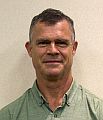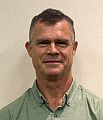REGISTRATION IS OPEN FOR WATERSHED MOMENTS 2023: “A Pathway to Water Reconciliation and Resilience at the Local Scale”- register now for the Blue Ecology Virtual Seminar on February 23, 2023

“From 7PM until 9PM on February 23rd, the team of Michael Blackstock, Brian Carruthers and Richard Boase will seed the idea that hope lies within the sphere of local government, whether that be non-Indigenous or Indigenous That is the scale where actions do matter. In an interactive online broadcast via YouTube, Richard will moderate a free-flowing conversation between Michael and Brian. The goal is that this dynamic trio will light a spark with their enthusiasm and leave the audience with hope,” states Paul Chapman, Chair of the Watershed Moments Symposia Series.









